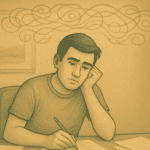Moncrieff, J., & Horowitz, M. (n.d.). Depression probably not caused by chemical imbalance: Study. NewsGP. https://www1.racgp.org.au/newsgp/clinical/depression-probably-not-caused-by-chemical-imbalan
Smoski MJ, Felder J, Bizzell J, Green SR, Ernst M, Lynch TR, Dichter GS. fMRI of alterations in reward selection, anticipation, and feedback in major depressive disorder. J Affect Disord. 2009 Nov;118(1-3):69-78. doi: 10.1016/j.jad.2009.01.034. Epub 2009 Mar 3. PMID: 19261334; PMCID: PMC2745481.
Hasler G. Pathophysiology of depression: do we have any solid evidence of interest to clinicians? World Psychiatry. 2010 Oct;9(3):155-61. doi: 10.1002/j.2051-5545.2010.tb00298.x. PMID: 20975857; PMCID: PMC2950973.
Jacob, Y., Morris, L.S., Verma, G. et al. Altered hippocampus and amygdala subregion connectome hierarchy in major depressive disorder. Transl Psychiatry 12, 209 (2022). https://doi.org/10.1038/s41398-022-01976-0
Pizzagalli, D.A., Roberts, A.C. Prefrontal cortex and depression. Neuropsychopharmacol. 47, 225–246 (2022). https://doi.org/10.1038/s41386-021-01101-7
Bains N, Abdijadid S. Major Depressive Disorder. [Updated 2023 Apr 10]. In: StatPearls [Internet]. Treasure Island (FL): StatPearls Publishing; 2025 Jan-. Available from: https://www.ncbi.nlm.nih.gov/books/NBK559078/
Shadrina M, Bondarenko EA, Slominsky PA. Genetics Factors in Major Depression Disease. Front Psychiatry. 2018 Jul 23;9:334. doi: 10.3389/fpsyt.2018.00334. PMID: 30083112; PMCID: PMC6065213.
Sullivan PF, Neale MC, Kendler KS. Genetic epidemiology of major depression: review and meta-analysis. Am J Psychiatry. 2000 Oct;157(10):1552-62. doi: 10.1176/appi.ajp.157.10.1552. PMID: 11007705.
Breen G, Webb BT, Butler AW, van den Oord EJ, Tozzi F, Craddock N, Gill M, Korszun A, Maier W, Middleton L, Mors O, Owen MJ, Cohen-Woods S, Perry J, Galwey NW, Upmanyu R, Craig I, Lewis CM, Ng M, Brewster S, Preisig M, Rietschel M, Jones L, Knight J, Rice J, Muglia P, Farmer AE, McGuffin P. A genome-wide significant linkage for severe depression on chromosome 3: the depression network study. Am J Psychiatry. 2011 Aug;168(8):840-7. doi: 10.1176/appi.ajp.2011.10091342. Epub 2011 May 15. PMID: 21572164.















